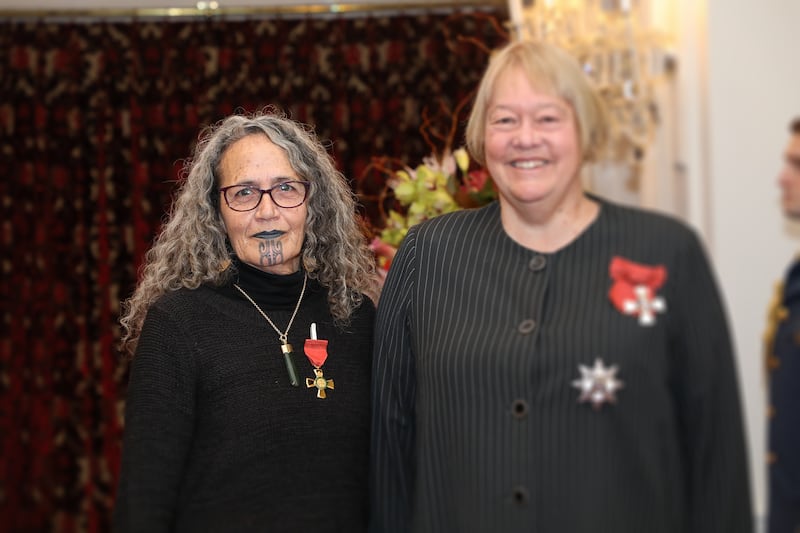In Thames, where many takatāpui, rainbow, and MVPFAFF+* survivors of Abuse in Care watched the national formal apology on Tuesday, concerns were raised about the absence of specific apologies to their communities in the speeches from seven key public sector leaders.
“The abuse that takatāpui [including trans whānau] experienced in care, state care, and faith-based care, there was no acknowledgement at all, so you’re left with thinking, again this community is being invisibilised,” Te Whāriki Manawāhine o Hauraki chief executive Denise Messiter said.
“If they can not acknowledge takatāpui in their apology, it’s a good indicator that this is going to continue.”
She was referring to the apologies given by Oranga Tamariki, Health, Education and Social Development ministries, Police, the Public Service Commission, and the Solicitor-General, which were made ahead of Prime Minister Christopher Luxon’s formal apology on behalf of successive governments.
Messiter (Ngāti Pūkenga ki Waiau) acknowledged the apologies from Luxon and opposition leader Chris Hipkins, including their recognition of the stories from the rainbow community in their speeches. However, she also noted that they were not the leaders running the organisations responsible for the past and present abuse.
But she said many questions were still unanswered when the apology was over.
“The survivors who were here with us, it was an emotional time for them. What was emotional was the memories.
“There were several words that were used. One was ‘disingenuous’, the other one was ‘just more words’, and ‘why has it taken them so long to do this?’”
Messiter isn’t a survivor herself but is close to the cause due to two of her uncles being institutionalised while in care.
‘Apology after apology’
She compared the apology to the years of Treaty settlements Māori have had to face with the Crown.
“We‘ve heard apology after apology through the Treaty settlements, and like our whānau have said and the whānau that were here today said - ’actions are going to speak louder than words’.
“If we are going to be looking at redress and implementing the recommendations of the royal commission for takatāpui and the rainbow community, they need to be front and centre of a redress system that contributes to our healing pathways,” she said.

The chief executive of Te Whāriki Manawāhine o Hauraki is hopeful for the future of the takatāpui, rainbow, and MVPFAFF+* communities, viewing November 12, 2024, as just a ‘point in time’ that has brought national awareness to the atrocities committed by state and faith-based institutions.
“It‘s become part of our historical knowledge, so it’s a point in time where we can reference ourselves back to and we can say this is what happened on this date at this year, these are the apologies, here are the reports.
“[While] some of the public service heads may have forgotten to apologise to takatāpui, the royal commission certainly didn’t forget takatāpui and the rainbow community and certainly had some very strong recommendations.
“It’s always onwards, keeping connected, taking care of each other, and celebrating the wins that we have each day.”
*‘MVPFAFF+’ is an acronym used to encompass the diverse gender and sexuality expressions and roles across Pacific cultures. it stands for:
- Mahu (Tahiti/Hawaii)
- Vaka se lewa lewa (Fiji)
- Palopa (Papua New Guinea)
- Fa’afafine (Samoa)
- Akava’ine (Cook Islands)
- Fakaleiti (leiti) (Tonga)
- Fakafifine (Niu)
The terms do not have a western equivalent but are loosely translated to mean ‘in the manner of a woman’



